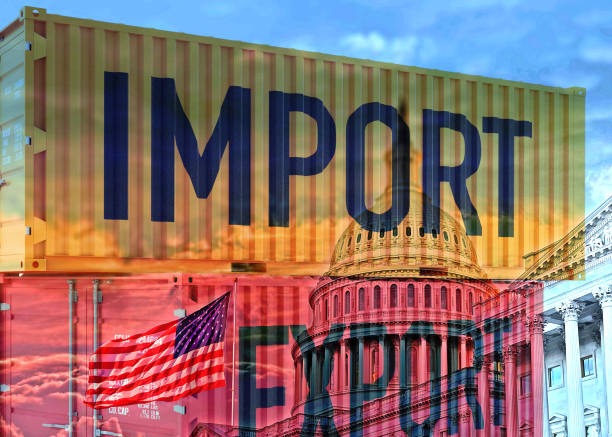Customs, Duties, VAT & Licensing for Imports in Cyprus
IT TRADING
11/13/20255 min read


Customs, Duties, VAT & Licensing for Imports in Cyprus
Understanding Customs, Duties, VAT & Licensing for imports in Cyprus is essential for anyone involved in international trade. In need of time saving, want to add additional expenses and not to go to additional pain getting into trouble with the law? Whether you are as an entrepreneur, one of those small business owners, or you are an importer knowing how these systems work, will save you on time, unnecessary spending, and you will be in the right side of the law. Secondly, due to the membership in the EU, the Republic of Cyprus has been subjected to European trading policies and these policies guarantee fair and transparent trade activities.
The latter, however, does not leave out documentation, tax and licensing of products. This article explains everything you need to know about Customs, Duties, VAT & Licensing for imports in Cyprus, written in a clear and friendly tone that’s easy to follow and AdSense-friendly.
Why Customs and Duties Matter
When goods enter Cyprus, they go through customs inspection to ensure they meet EU import rules. Customs, Duties, VAT & Licensing for imports in Cyprus exist to protect local industries, ensure product safety, and collect government revenue. Customs duties are taxes paid on imported goods. The rate will differ based on the nature of the business, country of origin and trade agreements between Cyprus and country where the export business is made. For example, goods imported from within the EU are usually duty-free, while items from non-EU countries may face customs duties. The system assists the Cypriot economy and provides a fair playing trading field.
Understanding Customs Duties in Cyprus
Customs duties apply mainly to non-EU imports. These rates are based on the EU’s Common Customs Tariff. To determine how much you must pay, customs officers check the product code (known as HS or TARIC code), country of origin, and declared value. For most IT products and electronics, duties are relatively low, but for luxury items or certain goods, they may be higher. It is the duty of the importers to ensure that they make correct documentation in form of invoice, packing list and certificate of origin. Proper paperwork makes Customs, Duties, VAT & Licensing for imports in Cyprus faster and easier to handle.
The Role of VAT in Imports
Value Added Tax (VAT) is another key part of Customs, Duties, VAT & Licensing for imports in Cyprus. The usual VAT rate in Cyprus is 19% that is applied to majority of import services and goods. It can be subsidized to some of the prices, e.g. necessary medicines, or some food commodities. Importers pay VAT at customs based on the product’s declared value, including shipping and insurance. The best thing about it is that registered businesses will be now in the position of recovering this VAT in their next tax returns. It should keep the right records and receipts to ensure that there is no problem in the processing.
Licensing Requirements in the Licensing of Certain Imports.
Not all products are easily imported. Such application is carefully scrutinized by licensing bodies so that the community compliance and safety is inculcated. The importers should also liaise with respective ministries or departments in Cyprus in case of importation and exportation of goods. When documentations are made properly and in a comprehensive way, there will be no delay or rejection.
The cost of personalized imports.
The price of imports does not simply entail the price of the product. You must account for shipping, insurance, customs duties, and VAT. All these add up to make it a part of the so-called landed cost. The knowledge will assist business to determine reasonable prices of sales and it will also assist them in budget preparation. Tools like the EU TARIC database can help estimate duties and taxes. The total costs would be monitored to eliminate the constant overheads and increase the profitability. Transparent and correct valuation is a major part of Customs, Duties, VAT & Licensing for imports in Cyprus.
According to the Free Trade and Exemptions.
Besides that, Cyprus is enjoying the number of trade agreements that the EU possesses. These agreements can lower or eliminate customs duties on certain goods. For instance, the imports in a country with a free trade agreement may receive lesser rates of duties provided they satisfied certain origin criteria. Such deals should not escape the attention of companies and will save a great amount of money. Staying informed about Customs, Duties, VAT & Licensing for imports in Cyprus allows companies to make smarter import decisions and stay competitive in the global market.
Ten bad practices as an importer.
Many importers make errors when handling Customs, Duties, VAT & Licensing for imports in Cyprus. Most common ones are unannounced, and poor records of restricted goods or queuing of products.
Technology and Modern Customs Systems
Digitalization has made Customs, Duties, VAT & Licensing for imports in Cyprus faster and more efficient. Cyprus Customs uses online platforms to file declarations, process payments, and issue clearances electronically. The importers can now effectively track the shipment and online submission of the forms where they can benefit with real time connection. This transparency does away with mistakes and trade encouragement. Organizations that use the tools save on time and money. The shift toward paperless customs systems reflects the island’s commitment to innovation and trade efficiency.
The Role of Customs Brokers and Freight Forwarders
They ensure all documents meet legal standards, calculate taxes correctly, and communicate with customs on behalf of clients. The businesses could focus on other issues other than red tape in collaboration with the current brokers.
Regulatory Capacity and The Legal environment.
Differently put, the EU and Cypriot trade laws will be applicable to all importers. Customs, Duties, VAT & Licensing for imports in Cyprus are managed under the Cyprus Customs and Excise Department. Any failure will attract fines, seizure of consignments, etc. In order to follow the changes in the regulation, import restrictions, and tariffs, a large number of business have subscribed to the trade associations to keep in check such changes, others have employed lawyers to inform them of such changes.
Conclusion
Understanding Customs, Duties, VAT & Licensing for imports in Cyprus is key to successful international trade. The importers who take time to learn how to save money and penalties and are able to have credibility of the customer. Cyprus has a transparent EU regime, which facilitates in just trade and development of business. Whether you import electronics, machinery, or consumer goods, knowing how duties, VAT, and licensing work will help you make smarter decisions. The regulations and record keeping will help to guarantee one the trouble-free operation and prosperity of his long-term operation within the Cypriot import market.


FAQs
Should licensing in the importation of any goods into Cyprus be permitted?
Such import licenses are not necessary unless it imports some products that are subjected to such importation like the medical diagnostic equipment, chemicals and telecommunication equipment’s. This implies that the regulations would have to be inspected during pre-shipment.
Does Cyprus allow the VAT paid on import to be refunded in the businesses?
Yes. Registered businesses may also have to make their taxes known so that they are refunded by VAT which is liable to the taxes of the country and cannot be issued without the proper documentation of the business.
Contact
EVERNEED AI LTD
Limassol Office
Victory House, Arch. Makarios III Avenue 205, Limassol, 3030
Nicosia Office
Digenis Ave 81-83 Grivas 1st, 5th Floors, Nicosia, 1090
Hong Kong Office
SUITE C, LEVEL 7
WORLD TRUST TOWER
50 STANLEY STREET
CENTRAL HONG KONG
Connect
info@tradingitcyprus.com
+357 96166570
© 2026. Trading IT Cyprus All rights reserved.
Powered by Skyrocket Marketers Agency
